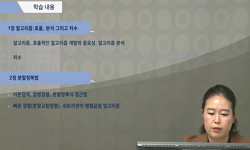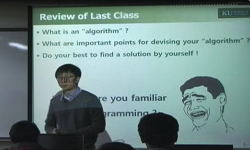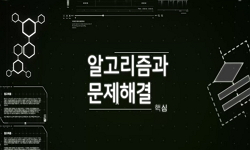‘길거리’와 같이 일상적인 단어들을 구글 이미지 검색에 입력했을 때, 그 사전적 의미와 무관한 사진들, 특히 여성의 몸을 관음증적 시선으로 대상화하는 사진들이 검색결과로 출력된다...
http://chineseinput.net/에서 pinyin(병음)방식으로 중국어를 변환할 수 있습니다.
변환된 중국어를 복사하여 사용하시면 됩니다.
- 中文 을 입력하시려면 zhongwen을 입력하시고 space를누르시면됩니다.
- 北京 을 입력하시려면 beijing을 입력하시고 space를 누르시면 됩니다.
https://www.riss.kr/link?id=A106623250
- 저자
- 발행기관
- 학술지명
- 권호사항
-
발행연도
2020
-
작성언어
Korean
-
주제어
알고리즘 ; 디지털성폭력 ; 검색엔진 ; 포르노그래피적 문화 ; 연관성 ; algorithm ; digital sexual violence ; search engine ; pornographic culture ; relevance
-
등재정보
KCI등재
-
자료형태
학술저널
-
수록면
5-44(40쪽)
-
KCI 피인용횟수
0
- DOI식별코드
- 제공처
-
0
상세조회 -
0
다운로드
부가정보
국문 초록 (Abstract)
‘길거리’와 같이 일상적인 단어들을 구글 이미지 검색에 입력했을 때, 그 사전적 의미와 무관한 사진들, 특히 여성의 몸을 관음증적 시선으로 대상화하는 사진들이 검색결과로 출력된다는 사실은 이미 널리 알려져 있다. 이 논문은 구글의 검색엔진이 어떻게 ‘길거리’를 여성의 몸이 남성의 관음증적 시선에 무차별적으로 노출되는 장소로, 혹은 그 장소에서 노출된 여성의 신체로 인지하게 되었는지, 그리고 이 검색결과가 여성에 대한 성적 대상화와 관음증적 쾌락의 공유가 이루어지는 남성 인터넷 문화를 문제화하는 사례로 정치화될 수 있었는지를 다룬다. 검색엔진의 알고리즘은 텍스트의 의미를 해석하는 대신, 웹에서 사용된 문자열의 빈도와 그들 사이의 근접성에 의해 그것이 사용자들에게 무엇을 뜻할지를 어림짐작하면서, 사용자들을 특정한 의미의 패턴을 공유하는 ‘계산된 대중’의 일원으로 호출한다. 검색결과가 자신이 원하는/예상하는 것과 불일치한다는 것은 ‘대중’ 내부의 분화, 혹은 적대를 드러낸다. 여성에 대한 성적 대상화와 관음증적 시선이 지배적인 남성문화, 특히 온라인 남성문화에 대해 비판적이었던 여성 사용자들은 ‘검색어 오염’을 검색엔진 알고리즘의 오작동이나 이미지 ‘규제’의 미비함의 문제로 보는 대신 알고리즘에 의해 ‘기억’되고 포착된 한국 남성인터넷 문화의 문제라고 지적했다. 이들의 문제제기는 알고리즘을 훈련시키는 것은 대중들이라는 ‘알고리즘적 상상’에 기대어 이를 논쟁의 주제로 만들어내고 그 알고리즘을 훈련시킨 대중의 책임성에 대해 질문하는 정치화된 대중의 행위자성에 주목하게 한다.
다국어 초록 (Multilingual Abstract)
When one enters certain everyday words as a query, Google Images sometimes returns lots of images seemingly irrelevant to the literal meaning of the words. For instance, the query gilgeori, the Korean word for streets would mostly retrieve voyeuristic...
When one enters certain everyday words as a query, Google Images sometimes returns lots of images seemingly irrelevant to the literal meaning of the words. For instance, the query gilgeori, the Korean word for streets would mostly retrieve voyeuristic photos of women on the street. This paper starts with a simple question: how the search engine could recognize “streets” as a place where women’s body is exposed to the voyeuristic male gaze, or rather women’s body that is exposed there, and discuss how this incident, which could otherwise be seen as a glitch, could be politicized by female internet users as a case that exemplifies the problem of male internet culture in which users collectively indulge in sexual objectification of women and voyeuristic pleasure. A search engine algorithm does not interpret the meaning of each query: it rather “predicts” what the user might expect by calculating the frequency and proximity between texts, while positing the user as one among its “calculated public”. Rather than attributing this incident to a malfunction of algorithm or a lack of regulation, these women claimed that the search results have made visible the misogynist internet culture in Korea that is “remembered” and captured. Their claim draws attention to a way of doing politics within an algorithmic culture in which algorithm is imagined as something to be trained by people and the public is thought to be accountable to the algorithmically represented reality.
목차 (Table of Contents)
- 1. 들어가며
- 2. 검색엔진 알고리즘의 정치학
- 3. 알고리즘적 ‘연관성’이 인도하는 경로를 따라가기
- 4. 일상을 포르노로 만드는 관음증적 태그들과 알고리즘적 ‘연관성’의 생산
- 5. 기이한 검색결과와 해석의 방식들
- 1. 들어가며
- 2. 검색엔진 알고리즘의 정치학
- 3. 알고리즘적 ‘연관성’이 인도하는 경로를 따라가기
- 4. 일상을 포르노로 만드는 관음증적 태그들과 알고리즘적 ‘연관성’의 생산
- 5. 기이한 검색결과와 해석의 방식들
- 6. 알고리즘이 정치화된 대중을 만날 때: ‘여혐 아카이브’와 ‘구글이 기억하는 한국남자’
- 7. 나가며
- 참고문헌
- Abstract
참고문헌 (Reference)
1 KBS뉴스, "한글 자모음 검색했더니 ‘음란사진’"
2 조선일보, "한글 ‘ㄱ’과 알파벳 ‘A’.. 구글 검색 결과는 딴판"
3 김수아, "온라인상의 여성 혐오 표현" 한국여성연구소 15 (15): 279-317, 2015
4 김수아, "온라인 피해 경험을 통해 본 성적 대상화와 온라인 성폭력 문제" 한국여성커뮤니케이션학회 34 (34): 89-130, 2019
5 Nussbaum, M. C., "불편한 인터넷: 표현의 자유인가? 프라이버시 침해인가?" 에이콘 2012
6 김소라, "디지털 성폭력의 변화 양상과 ‘음란성’(obscenity)을 근거로 한 규제의 한계" 아시아여성연구원 57 (57): 163-199, 2018
7 Noble, S. U., "구글은 어떻게 여성을 차별하는가: 불평등과 혐오를 조장하는 알고리즘 시대의 진실을 말하다" 한스미디어 2018
8 연합뉴스, "“레깅스는 일상복”…착용 여성 뒷모습 몰카 성폭력 무죄"
9 한국인터넷자율기구 검증위원회, "‘네이버’ 실시간급상승검색어 등에 대한검증보고서" 2013
10 미디어오늘, "‘길거리’로 검색하면 노출여성 뜨는 구글"
1 KBS뉴스, "한글 자모음 검색했더니 ‘음란사진’"
2 조선일보, "한글 ‘ㄱ’과 알파벳 ‘A’.. 구글 검색 결과는 딴판"
3 김수아, "온라인상의 여성 혐오 표현" 한국여성연구소 15 (15): 279-317, 2015
4 김수아, "온라인 피해 경험을 통해 본 성적 대상화와 온라인 성폭력 문제" 한국여성커뮤니케이션학회 34 (34): 89-130, 2019
5 Nussbaum, M. C., "불편한 인터넷: 표현의 자유인가? 프라이버시 침해인가?" 에이콘 2012
6 김소라, "디지털 성폭력의 변화 양상과 ‘음란성’(obscenity)을 근거로 한 규제의 한계" 아시아여성연구원 57 (57): 163-199, 2018
7 Noble, S. U., "구글은 어떻게 여성을 차별하는가: 불평등과 혐오를 조장하는 알고리즘 시대의 진실을 말하다" 한스미디어 2018
8 연합뉴스, "“레깅스는 일상복”…착용 여성 뒷모습 몰카 성폭력 무죄"
9 한국인터넷자율기구 검증위원회, "‘네이버’ 실시간급상승검색어 등에 대한검증보고서" 2013
10 미디어오늘, "‘길거리’로 검색하면 노출여성 뜨는 구글"
11 Jeong, E., "We take the red pill, we confront the DickTrix: online feminist activism and the augmentation of gendered realities in South Korea" 18 (18): 705-717, 2018
12 Granka, L., "The politics of search: A decade retrospective" 26 (26): 364-374, 2010
13 Introna, L., "The internet as a democratic medium: why the politics of search engines matters" 16 (16): 169-185, 2000
14 Bucher, T., "The algorithmic imaginary: exploring the ordinary affects of Facebook algorithms" 20 (20): 30-44, 2017
15 Postill, J., "Social media ethnography: the digital researcher in a messy web" 145 (145): 123-134, 2012
16 Renold, E., "Selfies, relfies and phallic tagging: posthuman part-icipations in teen digital sexuality assemblages" 49 (49): 1066-1079, 2017
17 Apprich, C., "Pattern discrimination. Vol. 1" meson press 2018
18 Latour, B., "Pandora’s hope: essays on the reality of science studies" Harvard University Press 1999
19 Gillespie, T., "Media technologies" MIT Press 167-193, 2013
20 Bucher, T., "Innovative Methods in Media and Communication Research" Palgrave Macmillan 2016
21 PinkNews, "Google France changes algorithm for ‘lesbian’ search term to show less porn"
22 Thornton, P., "Geographies of (con)texanguage and structure in a digital age" 6 : 2017
23 Eslami, M., "First I like it, then I hide it: Folk theories of social feeds" ACM 2371-2382, 2016
24 Fotopolou, A., "Feminist activism and digital networks: Between empowerment and vulnerability" Palgrave Macmillan 2017
25 Rogers, R., "Deep search: the politics of search engines beyond Google" Transaction Publishers 173-184, 2009
26 Crawford, K., "Can an algorithm be agonistic? Ten scenes from life in calculated publics" 41 (41): 77-92, 2016
27 Gillespie, T., "Algorithmically recognizable: Santorum’s Google problem, and Google’s Santorum problem" 20 (20): 63-80, 2017
28 Julia Velkova, "Algorithmic resistance: media practices and the politics of repair" Informa UK Limited 24 (24): 523-540, 2019
29 Gillespie, T., "Algorithmic cultures: Essays on meaning, performance and new technologies" Routledge 52-75, 2016
30 하예나, "<반성폭력 이슈리포트> 11호" 6-24, 2017
동일학술지(권/호) 다른 논문
-
언론학 혐오 연구의 메타 분석: 2010년대 국내 신문방송학 등재지 게재 논문을 중심으로
- 한국여성커뮤니케이션학회
- 홍성일(Sungil Hong)
- 2020
- KCI등재
-
BL장르 세계관 분석을 통한 가상적 섹슈얼리티 생산 가능성 연구: 알파 / 오메가 섹슈얼리티의 페미니즘적 해석을 중심으로
- 한국여성커뮤니케이션학회
- 장민지(Mingi Jang)
- 2020
- KCI등재
-
지식의 편향 구조와 혐오: 국내 위키 서비스 ‘여성혐오’ 논란을 중심으로
- 한국여성커뮤니케이션학회
- 김수아(Sooah Kim)
- 2020
- KCI등재
분석정보
인용정보 인용지수 설명보기
학술지 이력
| 연월일 | 이력구분 | 이력상세 | 등재구분 |
|---|---|---|---|
| 2026 | 평가예정 | 재인증평가 신청대상 (재인증) | |
| 2020-01-01 | 평가 | 등재학술지 유지 (재인증) |  |
| 2017-01-01 | 평가 | 등재학술지 유지 (계속평가) |  |
| 2013-01-01 | 평가 | 등재학술지 유지 (등재유지) |  |
| 2010-01-01 | 평가 | 등재학술지 선정 (등재후보2차) |  |
| 2009-01-01 | 평가 | 등재후보 1차 PASS (등재후보1차) |  |
| 2007-06-12 | 학회명변경 | 영문명 : Korea Women'S Communication Association -> Korean Women's Association for Communication Studies |  |
| 2007-01-01 | 평가 | 등재후보학술지 선정 (신규평가) |  |
학술지 인용정보
| 기준연도 | WOS-KCI 통합IF(2년) | KCIF(2년) | KCIF(3년) |
|---|---|---|---|
| 2016 | 1.66 | 1.66 | 1.85 |
| KCIF(4년) | KCIF(5년) | 중심성지수(3년) | 즉시성지수 |
| 1.73 | 1.74 | 2.562 | 0.55 |




 DBpia
DBpia






